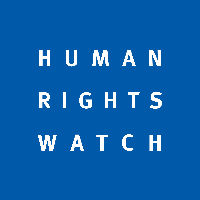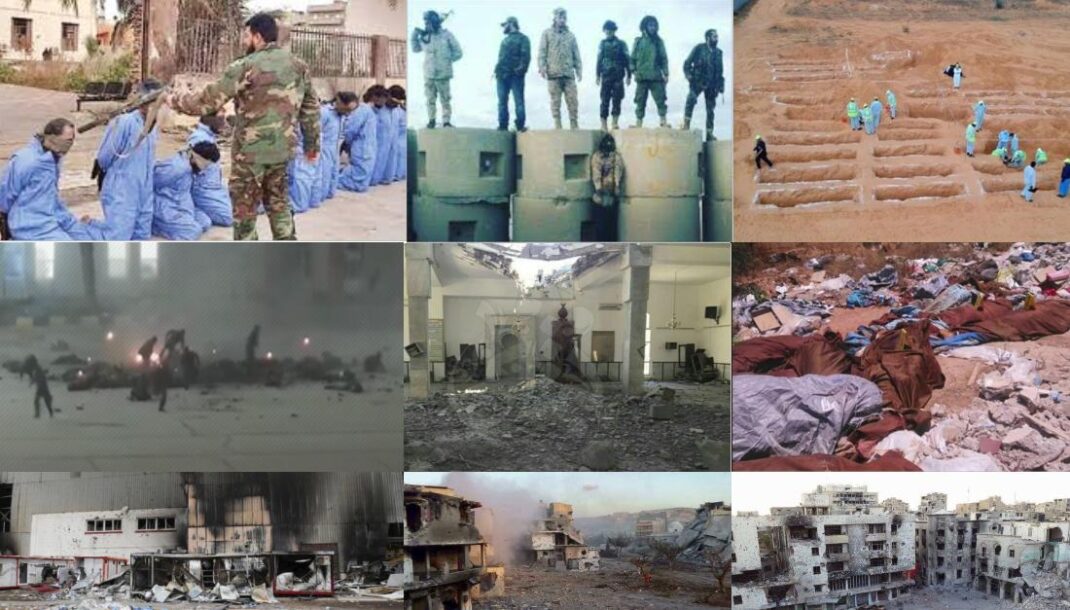Continued Investigation of Rights Situation in the Country Remains Essential
Hanan Salah

United Nations experts have concluded that security forces and armed groups in Libya may have committed a “wide array of war crimes and crimes against humanity” against Libyans and migrants, making an urgent call for “accountability to end this pervasive impunity.”
The final report by the UN Independent Fact-Finding Mission on Libya (FFM) documented sweeping abuses including “repression of civic groups, arbitrary detention, murder, rape, enslavement, extrajudicial killing and enforced disappearance.”
Human rights conditions in Libya are precarious, and restrictions imposed by authorities on the work of humanitarian groups and other organizations threaten to make things worse.
Libyan authorities have imposed unworkable conditions on civic groups in terms of registration, financial reporting, and activities. The Tripoli-based Government of National Unity (GNU) recently imposed severe restrictions on international organizations and civic groups’ ability to obtain visas to enter Libya, including Human Rights Watch. This could lead to withholding of vital humanitarian aid and support to vulnerable communities.
In its report, the FFM also cited that authorities did not grant its specialists access to all regions, nor to any places of detention around the country.
For these reasons and more, it is crucial that scrutiny of Libya should continue.
The anticipated end of the FFM’s mandate this month without the option of renewal and increasing restrictions on the work of civic groups in Libya will drastically reduce visibility into what is happening in the country.
That makes the FFM’s recommendation to the UN Human Rights Council (UNHRC) to establish an independent international investigative mechanism crucial, as well as the call for the Office of the UN High Commissioner for Human Rights to establish an autonomous, ongoing mechanism to monitor and report on gross human rights violations.
A resolution on Libya at the current session of the UNHRC falls drastically short of these calls, focusing instead on capacity building and technical assistance to Libyan authorities.
Libyan nongovernmental groups have called on the international community to ensure Libya remains under the UNHRC’s scrutiny and the subject of independent international investigations.
If not, there’s a risk that entrenched warlordism and perpetual conflict will only increase abuses and shrink civic space even further. The international community should heed their call.
***
Hanan Salah – Associate Director, Middle East and North Africa Division
*********
UN investigation says EU ‘aided’ crimes against humanity in Libya
The report, based on interviews with hundreds of people, will be presented to UN Human Rights Council
A UN fact-finding mission has said the European Union “aided and abetted” Libyan authorities’ crimes against migrants.
A new report from the UN will be released and presented to the Human Rights Council later this week.
According to the report, crimes against humanity were carried out against migrants in detention centres.
The report is based on interviews with 400 people including migrants and witnesses, along with photographs and videos.
“Although we’re not saying that the EU and its member states have committed these crimes.
The point is that the support given has aided and abetted the commission of the crimes,” Chaloka Beyani, one of the independent mission’s members, said.
The EU and member states have supported and trained the Libyan coastguard, which returns migrants to detention centres.
They have also funded Libyan border management programmes.
The vast majority of people attempting the Mediterranean crossing pass through war-torn Libya.
According to Human Rights Watch (HRW), 32,450 people were intercepted by Libyan forces in 2021 and “hauled back to arbitrary detention and abuse” in the country.
The UN mission said it would pass any evidence of war crimes and crimes against humanity to the International Criminal Court.
According to the mission, militia groups have carried out murders, rapes, enslavement, judicial killings, and forced disappearances.
“The violations and abuses investigated by the mission were connected primarily to the consolidation of power and wealth by militias and other state-affiliated groups,” the report said.
“Trafficking, enslavement, forced labour, imprisonment, extortion and smuggling of vulnerable migrants generated significant revenue for individuals, groups and state institutions.”
In 2022, the EU was criticised for using a drone to help Libyan forces intercept boats carrying migrants in the Mediterranean.
The drone, which operated out of EU member Malta, played a “crucial role” in detecting boats leaving Libya, information that the EU’s border agency, Frontex, then hands to the Libyan coastguard, HRW said.
“Frontex claims the surveillance is to aid rescue, but the information facilitates interceptions and returns to Libya… [despite] overwhelming evidence of torture and exploitation of migrants and refugees in Libya,” HRW said in a statement.
____________





